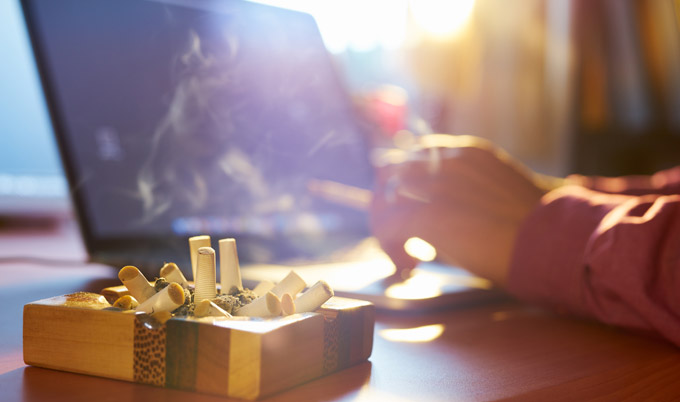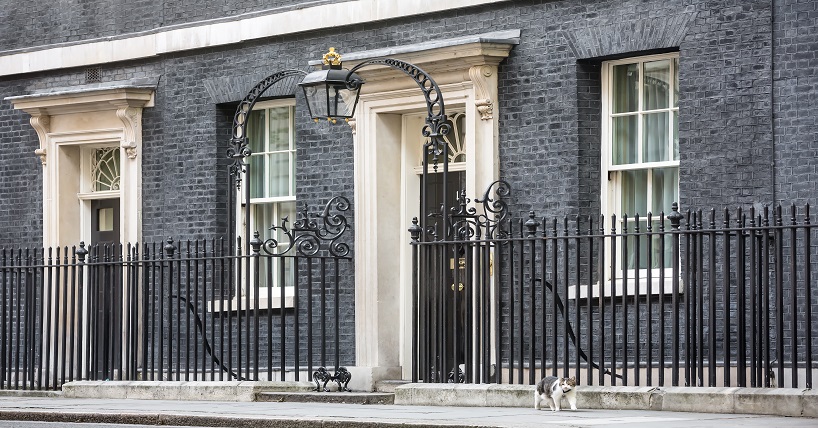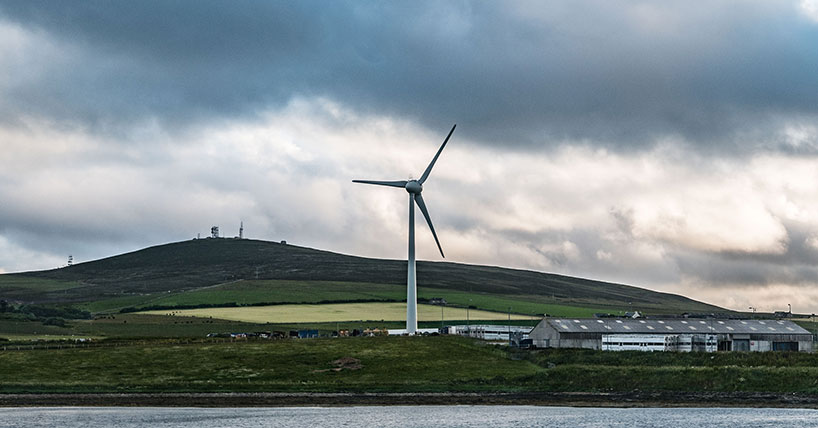Secondhand smoke
New campaign to protect children from exposure to secondhand smoke
Published on: 19 June 2017
New figures suggest at least one in 10 North East children are still being exposed to toxic secondhand smoke in the home as a hard-hitting new campaign launches today.
The “Secondhand smoke is Poison” campaign, led by Fresh and supported by a Newcastle University expert, is warning that smoking in the home exposes not just smokers but children and adults to harmful levels of toxic chemicals, which creep from room to room and can linger for up to five hours.
85% of secondhand smoke is invisible and odourless but many people are not aware that steps like opening a window, smoking by the back door or smoking in another room does little to protect children and other non-smoking adults.

Health problems
Secondhand smoke causes numerous health problems in infants and children, raising the risks of more frequent and severe asthma attacks, respiratory infections, ear infections, and even meningitis and sudden infant death.
Among adults, studies have consistently shown exposure to secondhand smoke can increase the risk of stroke and coronary heart disease and lung cancer in non-smokers.
Dr Malcolm Brodlie, Clinical Senior Lecturer at the Institute of Cellular Medicine, Newcastle University, and Honorary Consultant in Paediatric Respiratory Medicine, Great North Children's Hospital, and MRC Clinician Scientist, is supporting the campaign.
He said: “Breathing in secondhand smoke is harmful to people from all age groups, but children are especially vulnerable as their lungs are still developing and they breathe faster than adults, so inhale more of the harmful poisons. There is no safe level of exposure.
"We see the effects of this on hospital wards too often. Babies and children who breathe in smoke are more likely to have problems with asthma attacks and chest infections, and need more hospital care and doctors’ appointments.
“Most parents take this seriously when they realise that their smoking may be making their child unwell and want to do something positive about it."
Secondhand smoke exposure
The Royal College of Physicians 2010 report “Passive Smoking and Children” estimated that secondhand smoke exposure in UK children each year caused over 20,000 cases of lower respiratory tract infection, 120,000 cases of middle ear disease, at least 22,000 new cases of wheeze and asthma, 200 cases of bacterial meningitis, and 40 sudden infant deaths.
Ailsa Rutter, Director of Fresh, said: “When someone lights a cigarette they are setting fire to a cocktail of chemicals and industrial pollutants. These not only go into the lungs and around the body, but into the air as secondhand smoke.
"Every parent wants to protect their children. However, many smokers think they’re already doing enough by opening a window or smoking at the back door, without realising how poisonous secondhand smoke spreads around the house and lingers, long after you can see it or smell it.
“Smokers we have talked to felt this was important information that people needed to know, even if these facts are shocking.
"This isn’t about a person’s choice to smoke, but being clear that if they aren’t thinking about quitting, then taking it right outside is the best way to ensure they don't put their family’s health at risk."
Campaigns
This is the second time Fresh has teamed up with the British Lung Foundation to launch a major campaign aimed at raising awareness of the risks of tobacco smoke, following the “Every Breath” campaign which first launched in 2011. The British Lung Foundation campaigned for the law preventing smoking in cars with children which was introduced in 2015 and is now supported by 91% of North East adults.
Dr Penny Woods, chief executive of the British Lung Foundation said: “Secondhand smoke is poison, with potential to cause severe damage to children’s health in enclosed spaces. We campaigned successfully for legislation to stop people smoking in cars with children, where concentrations of smoke can be 11 times higher than found previously in the average smoky pub.
"Unfortunately, some people continue to smoke in other environments, not realising that the fumes raise the risk of severe asthma attacks and respiratory infections among children.
“Increasing awareness of these dangers through vital educational campaigns, like this one, is the key to helping people protect their families’ health.”
In contrast to the known harm from secondhand tobacco smoke, there is no evidence of harm to bystanders from exposure to electronic cigarette vapour.
Press release adapted with thanks to Fresh



